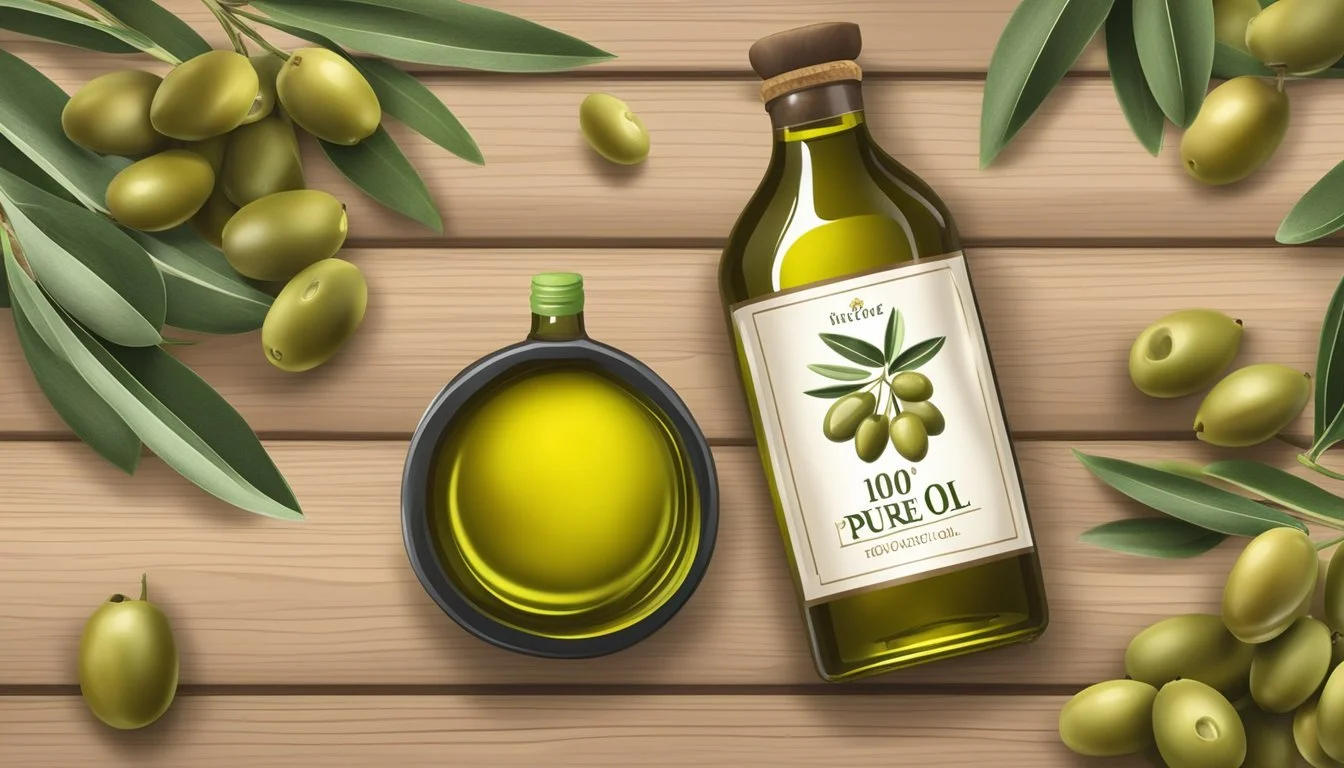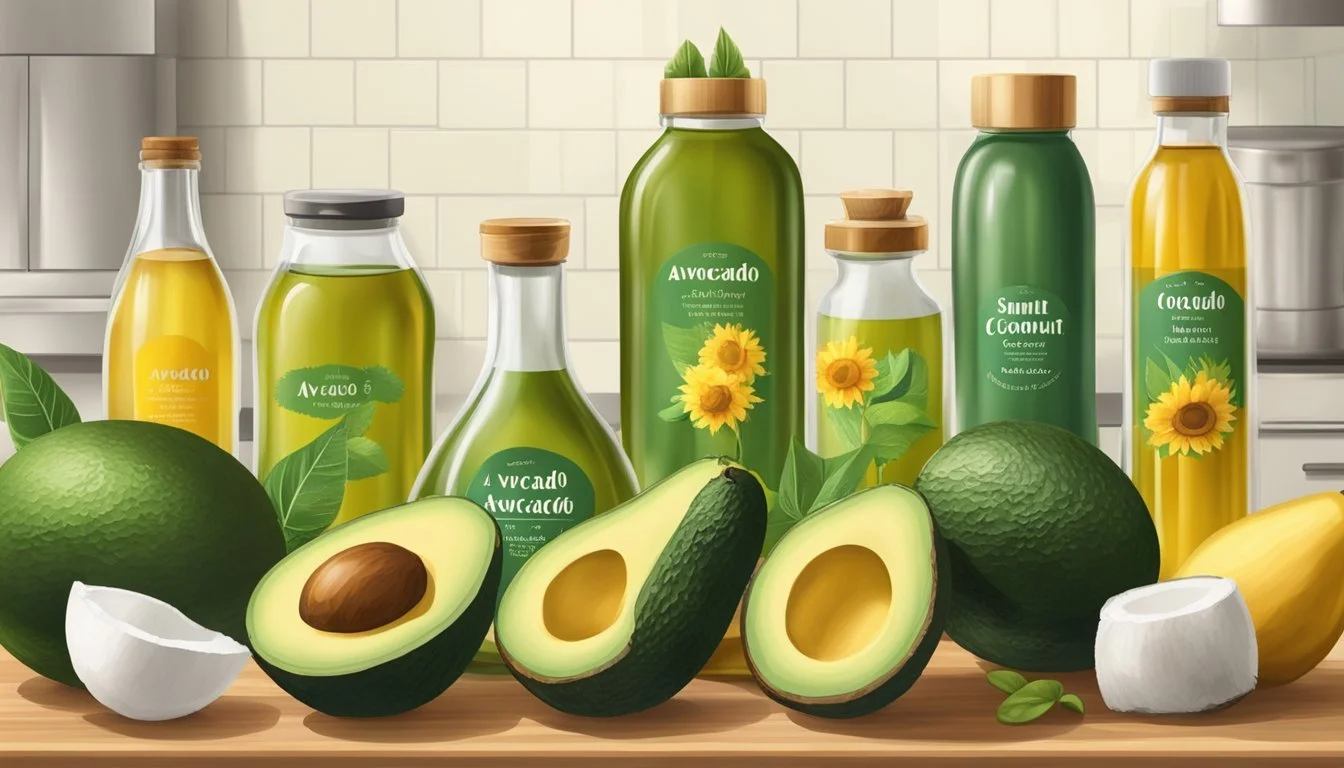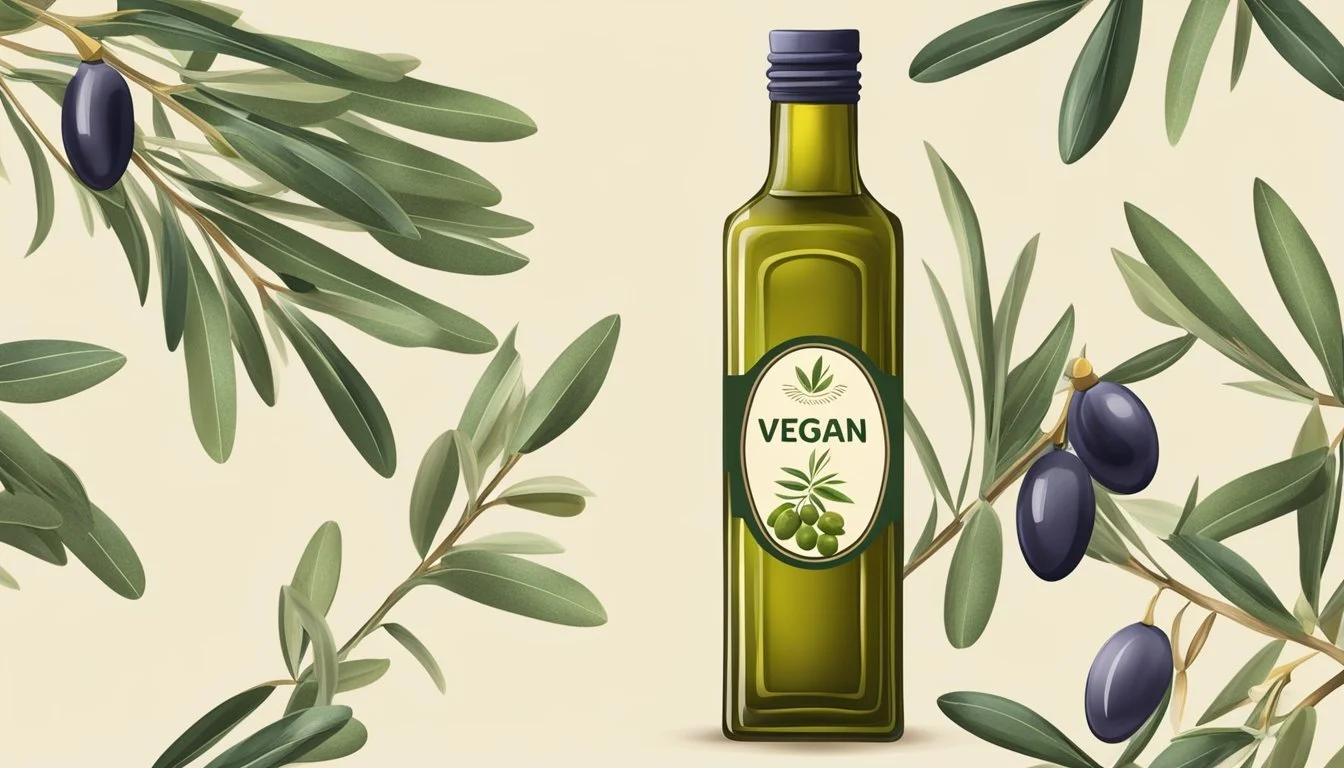Is Olive Oil Vegan?
Understanding Its Plant-Based Origins
Olive oil, a staple in many kitchens, is known for its versatility and health benefits. With growing concerns over ethical eating and sustainable lifestyles, the vegan community frequently seeks clarity on which foods align with their plant-based diets. Olive oil fits seamlessly within the vegan spectrum since it is extracted from olives, a fruit, and its production does not necessitate the use of animal products or by-products.
While the origins of olive oil are undeniably plant-based, the vegan ethos extends beyond just diet. It encompasses a broader consideration of ethical and environmental factors. In this context, consumers may evaluate the sourcing and production methods of olive oil to ensure they align with vegan values such as the avoidance of exploitation. Nonetheless, for dietary purposes, olive oil is recognized as vegan-friendly, offering a heart-healthy alternative to animal fats that can enrich an array of culinary creations without compromising vegan principles.
What Is Olive Oil?
Olive oil is an oil obtained from olives, the fruit of Olea europaea; it is a liquid fat that is widely recognized for its nutritional properties, including a high content of monounsaturated fats. Its production involves extracting the oil from the olives and is available in various grades that differ in processing methods and quality.
Olive Oil Production
The production of olive oil starts with harvesting olives which are then washed and crushed into a paste. The olive paste is mixed in a process called malaxation, which helps the oil droplets to amalgamate. Following malaxation, oil extraction occurs either by traditional mechanical pressing or with modern centrifuge techniques. Virgin varieties of olive oil, including extra virgin and virgin grades, are produced without using chemicals or excessive heat, preserving the flavor and nutritional quality of the oil.
Grades of Olive Oil
There are several grades of olive oil, each defined by its production process and quality:
Extra Virgin Olive Oil (EVOO): This is the highest quality olive oil, characterized by excellent flavor and aroma with free acidity not exceeding 0.8%. It is obtained purely from mechanical means without heat, termed as cold-pressed.
Virgin Olive Oil: Similar to EVOO, but with slightly higher acidity (up to 2%) and minor defects in flavor and aroma.
Refined Olive Oil: Made by refining virgin olive oils that have a high level of acidity or defects. It has no strong flavors and often used for cooking at higher temperatures.
Pure or Regular Olive Oil: A blend of refined and virgin grades, offering a balance between flavor and suitability for high-temperature cooking.
Olive Oil Characteristics
Olive oil's characteristics such as flavor, color, and aroma vary based on type and quality:
Flavor: Extra virgin olive oil usually exhibits a fruity, peppery, and slightly bitter taste, while refined oils have a more neutral flavor.
Color: Ranges from green to golden; however, color is not an indicator of quality.
Smoke Point: An important characteristic for cooking; extra virgin olive oil has a lower smoke point (around 375°F) compared to more refined oils, which can typically tolerate higher temperatures.
Aroma: High-quality olive oils like EVOO are known for having a fresh, clean, and often grassy aroma.
By understanding these aspects, consumers can select the most appropriate olive oil for their culinary needs and health preferences.
Dietary Considerations
When assessing olive oil's place in a vegan diet, it's important to understand its nutritional content and how it aligns with vegan values. Olive oil is embraced in vegan eating patterns for its plant-based origin and the healthy fats it provides.
Olive Oil in a Vegan Diet
Olive oil is a vegan-friendly product since it is derived directly from olives, which are fruits, without the use of animal products or by-products. It fits seamlessly into a plant-based diet, offering versatility for cooking and flavor enhancement. Vegans often rely on olive oil as a source of healthy fats and as a substitute for animal-derived fats. The emphasis on monounsaturated fats in olive oil contributes to its reputation for supporting heart health, by potentially helping to lower LDL cholesterol (often referred to as 'bad' cholesterol) without negatively impacting HDL cholesterol ('good' cholesterol).
Nutritional Content
Olive oil is a nutrient-dense option, providing more than just fat. It contains calories primarily from fats but is free of cholesterol, making it a heart-healthy choice. Here's a breakdown of the key nutritional components:
Healthy Fats: Dominantly composed of monounsaturated fats which are considered heart-healthy.
Vitamins: A rich source of fat-soluble vitamin E and vitamin K, with antioxidant properties and roles in blood health and bone metabolism.
In a 1 tablespoon serving of olive oil:
Calories: 119
Total Fat: 13.5g
Saturated Fat: 1.9g
Monounsaturated Fat: 9.8g
Vitamin E: 1.94mg (13% of the Daily Value)
Vitamin K: 8.13μg (10% of the Daily Value)
Olive oil also contains traces of antioxidants and polyphenols that contribute to its health benefits, although it does not contain fiber or protein. Its caloric density must be considered for those managing calorie intake. Despite its benefits, moderation is key in a balanced diet.
Health Benefits and Concerns
Olive oil is recognized for its nutritional value and health-promoting properties, primarily due to its content of unsaturated fats. It has been associated with beneficial effects on heart health and the mitigation of certain disease risks.
Positive Impacts on Health
Olive oil, particularly extra virgin olive oil, is high in monounsaturated fats, which have been shown to support heart health. Studies suggest that these fats can help to lower bad cholesterol levels and maintain healthy blood pressure, reducing the risk of heart disease. Additionally, the presence of antioxidants known as polyphenols helps to combat inflammation and could play a role in protecting against type 2 diabetes and obesity.
Monounsaturated fats: May reduce the risk of heart disease
Polyphenols: Combat oxidative stress and reduce inflammation
Dietary Fats and Disease
When considering the role of dietary fats in disease, it's important to differentiate between saturated and unsaturated fats. Olive oil contains predominantly unsaturated fats, which are considered beneficial for health. In contrast, diets high in saturated fats can contribute to the development of diseases, including heart disease and obesity.
Unsaturated fat: Found in olive oil; associated with reduction in disease risk
Saturated fat: Typically found in animal products; higher intake linked with increased disease risk
By focusing on incorporating unsaturated fats like those found in olive oil and reducing saturated fat intake, individuals may improve their overall health profile.
Olive Oil in Cooking
Olive oil is a central ingredient in vegan cooking, appreciated for its versatility in recipes and health benefits. It is widely used in both cold dishes, such as salads, and in various cooking techniques, though it is important to consider its smoke point for high-temperature applications.
Cooking with Olive Oil
Olive oil, specifically extra virgin olive oil, has a relatively low smoke point compared to other oils like avocado or canola oil. The smoke point of an oil is the temperature at which it begins to smoke and break down, potentially producing harmful compounds and affecting flavor. When cooking at high temperatures, such as roasting or frying, chefs should be cautious:
Roasting: Opt for light or refined olive oil with a higher smoke point.
Frying / Sautéing: Extra virgin olive oil is not recommended; instead, choose light olive oil.
For those concerned about maintaining the integrity of olive oil's flavor and health properties, it is best incorporated into dishes cooked at lower temperatures or added after cooking.
Olive Oil in Recipes
Olive oil plays a significant role in vegan recipes, both for its flavor and nutritional profile. In salads, olive oil serves as a foundational element for dressings, lending a fruity, rich flavor that complements the freshness of the vegetables. Below is a brief outline of olive oil's uses in vegan recipes:
Salads: A primary ingredient in salad dressings, paired with vinegar or lemon juice.
Vegan Recipes: Acts as a substitute for butter and other fats in baking, sautéing, and more.
In addition to its culinary uses, olive oil provides essential monounsaturated fats important in a well-rounded vegan diet. It remains a staple in vegan cooking, offering a simple way to add depth and richness to a variety of dishes.
Olive Oil Alternatives
When seeking alternatives to olive oil, consumers may consider a range of plant-based oils that offer various health benefits and cooking properties. These alternatives can suit different dietary preferences and environmental considerations.
Comparing Different Oils
Plant-based oils, such as avocado, canola, sunflower, and vegetable oils, provide various nutritional profiles and cooking applications. Avocado oil is lauded for its high content of monounsaturated fats, making it a heart-healthy option similar to olive oil. Canola oil and sunflower oil are predominantly known for their polyunsaturated fats.
Monounsaturated fats: Beneficial for heart health.
Cooking uses: Baking, sautéing, and stir-frying.
Canola Oil:
Polyunsaturated fats: Good for general cooking purposes.
Cooking uses: Good for grilling and baking due to its neutral flavor.
Sunflower Oil:
Polyunsaturated fats: Contains vitamin E.
Cooking uses: Suitable for high-heat cooking methods.
Vegetable Oil:
A blend of different plant-based oils.
Cooking uses: Versatile for frying and baking.
Substitution for olive oil can typically be done on a 1:1 ratio, meaning one tablespoon of olive oil can be replaced with one tablespoon of any of the oils mentioned.
Environmental and Ethical Considerations
The environmental impact of producing plant-based oils often revolves around the emissions from cultivation, processing, and transportation. Canola and sunflower oils generally have lower emissions than some animal-based fats, but may have different environmental footprints compared to olive oil due to their production processes.
Environmental Impact:
Avocado Oil: Water-intensive crop, concerns over deforestation.
Canola Oil: Often genetically modified, but emits fewer greenhouse gases.
Sunflower Oil: Lower water usage, less land-intensive.
Vegetable Oil: Variable impact depending on the oils included in the blend.
Vegetable oils, including these olive oil alternatives, do not contain any animal-based ingredients, making them suitable for those following a vegan diet. However, ethical considerations such as the effect on local ecosystems and communities might influence consumer choice. Therefore, it is advised to select oils with certifications that support sustainable farming practices.
Understanding Olive Oil Authenticity
When purchasing olive oil, it's crucial to understand how to identify its purity and ensure you're getting the quality you pay for. Knowing how to interpret the certifications and labels can protect consumers from fraud and guarantee the authenticity of the product.
Identifying Pure Olive Oil
Pure olive oil should exhibit certain sensory characteristics which include a fresh, fruity aroma, and a flavor profile that can include notes of bitterness and spiciness. Specifically, extra-virgin olive oil is made from pure, cold-pressed olives, whereas other types, like "light" or "refined" olive oil, are made using processes that can strip away flavors and benefits. The absence of a heat- and chemical-free refining process marks extra-virgin oil as the highest grade available.
Extra-virgin: No refining process, acidity level below 0.8%, extracted by mechanical means.
Virgin: Slighter higher acidity, may exhibit some sensory flaws, minimally processed.
Pure or Olive Oil: A blend of refined and virgin oils, undergoes heat and chemical treatment.
To safeguard their purchase, consumers should:
Look for harvest or best-by dates.
Ensure the label specifies the type of olive oil.
Check for a dark-tinted bottle which helps preserve the oil's quality by protecting it from light.
Be wary of terms like "pure" or "light" as these can often be misleading.
Certification and Labeling
Authenticity can further be verified through certifications and labels which are provided by various organizations committed to maintaining standards within the olive oil industry. One recognized body in the United States is the California Olive Oil Council (COOC), which provides certification that includes sensory evaluation, chemical testing, and ensures the oil meets the criteria for being classified as extra-virgin.
Consumers should look for:
COOC Seal: Indicates the olive oil has met rigorous standards.
PDO (Protected Designation of Origin) / PGI (Protected Geographical Indication): European certifications guaranteeing the product is made with traditional methods from a specific area.
ISO: International standards that ensure consistency in the product's quality.
A table illustrating common labels and terms the consumer may encounter:
Label/Term Meaning COOC Certified Meets criteria for extra-virgin qualification in California. Extra-Virgin Highest quality, no refining, acidity below 0.8%. Pure/Light Olive Oil A blend of refined and virgin oils, lower quality than extra-virgin. PDO/PGI Locally sourced and produced using traditional methods.
Through understanding these vital components of olive oil authentication, buyers can ensure they select a high-quality, authentic product.
Olive Oil's Global Footprint
The cultivation, production, and consumption of olive oil have significant implications on a global scale, particularly highlighting the roles of leading Mediterranean producers and the influence of agricultural practices on environmental sustainability.
Major Olive Oil Producers
Mediterranean countries dominate the olive oil market due to their favorable climates and historical ties to olive cultivation. The foremost producers include:
Spain: The largest producer, supplying approximately half of the world's olive oil.
Italy: Known for its high-quality and diverse olive oil varieties.
Greece: A leading producer with a high consumption rate per capita.
These producers not only contribute substantially to the global supply but also embody the cultural heritage of olive oil within their culinary traditions.
Cultivation and Harvesting Practices
The process of cultivation and harvesting is crucial in determining the quality of olive oil. Producers prioritize the ripeness of olives at picking time to ensure a balance between flavor and acidity. Traditional methods include:
Hand-picking: Labor-intensive but promotes lower rates of erosion and is gentler on trees.
Mechanical harvesting: Increases efficiency but can lead to greater soil compaction.
Mediterranean regions often face challenges such as soil erosion and water scarcity, thus sustainable agricultural practices are essential to maintain the health of the land and the long-term viability of olive oil production.







